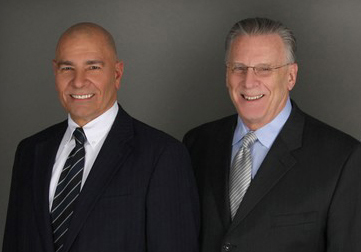We have come this week to the final installment in this very informative series by experts Lawrence Barrett and Thomas Craft on the topic of a Buy-Sell Agreement. Many thanks to these gentlemen and their work at the Independent Pharmacy Consulting Group. I sincerely encourage any readers who are pharmacy owners, or considering ownership, to reach out to them for help and advice.
For your convenience, here are the links to the first five articles in this series:
- Why Independent Pharmacists Need a Buy-Sell Agreement?
- What Type of Buy-Sell Agreement?
- Determining the Value of Your Independent Pharmacy
- Funding Your Buy-Sell Agreement
- Life Insurance and Your Buy-Sell Agreement
Six Things an Independent Pharmacist Should Consider Before Preparing a Buy-Sell Agreement
In this sixth and final installment we add a bonus section on the tax consequences of using a Buy-Sell Agreement.
Tax Consequences of a Buy-Sell Agreement
In the second installment of this six-part series, we discussed a Cross-Purchase Agreement where shareholders in a pharmacy are obligated to personally purchase a deceased shareholder’s interest. Each shareholder owns, pays premiums for and is the beneficiary of a life insurance policy on the life of the other shareholder. We also discussed a Stock Redemption Agreement where the pharmacy, rather than the individual shareholders, is obligated to purchase the stock of a deceased shareholder. The pharmacy owns, pays premiums for and is the beneficiary of a life insurance policy on each individual shareholder’s life. This article examines the tax impact of both agreements.
Are Premiums Payments Tax Deductible?
In a Cross-PurchaseAgreement where an individual shareholder purchases life insurance on the life of another shareholder and pays the premium, there is no deduction allowed. The premium payment is paid with after-tax dollars. The Internal Revenue Code clearly denies any tax deduction for premiums paid by a corporation on life insurance covering the life of an officer, employee or anyone financially interested in the business when the corporation is a direct or indirect beneficiary of the policy. In a Stock Redemption Agreement, the pharmacy is both the owner and beneficiary and, therefore, unable to deduct any premium payments.
Are Premiums Paid Taxable to the Insured Shareholder?
Any premiums that are paid by a co-shareholder are not treated as taxable income to the insured in a Cross-Purchase Agreement. When the pharmacy is the beneficiary or the beneficiary’s right to receive proceeds is conditioned upon the transfer of stock to the pharmacy, premium payments will not be subject to taxation to the individual shareholders in a Stock Redemption Agreement.
Are Death Benefit Proceeds Taxable?
The general rule is that life insurance proceeds paid as a result of the death of the insured are excludible from the beneficiary’s taxable income. This exclusion extends to all shareholders involved in a Cross-Purchase Agreement. A pharmacy that is a beneficiary receives the same tax treatment afforded individuals. In a Stock Redemption Agreement, when the intent of the pharmacy is to use the insurance proceeds to purchase the shares of the deceased shareholder from the estate or executor, the proceeds are received income tax-free.
How is Cost Basis of the Stock Affected by the Insurance?
Under a Cross-Purchase Agreement, the basis of the stock purchased by a surviving shareholder is the original basis for the shares owned before the purchase plus the consideration paid for the decedent’s shares. In other words, the shareholder’s basis step-ups for the newly acquired shares of the pharmacy to the purchase price in the Buy-Sell Agreement. The results are quite different in a Stock Redemption Agreement where the surviving shareholders are not personally paying any money for the deceased shareholder’s stock. The pharmacy purchasing the stock is a separate tax entity, therefore, the cost basis in the hands of the surviving shareholder remains unchanged. In other words, the purchase of the stock has no impact on the cost basis of the surviving shareholders.
The deceased shareholder’s stock receives a step-up in basis to its value at the date of death under both types of Buy-Sell Agreements where the surviving shareholders only receive a step-up when a Cross-Purchase Agreement is used. The tax implications could be great for the surviving shareholders under a Stock Redemption Agreement when they sell their ownership interest as they are subject to capital gains on their portion as well as the portion of the previously deceased shareholder.
Will Premium Payments Affect Earnings and Profits of the Company?
There is no affect to earnings and profits of the pharmacy in a Cross-Purchase Agreement since the pharmacy is not a party to the agreement. All or part of the premium payments reduce the pharmacy’s retained earnings where the pharmacy owns and pays for life insurance used to fund a Buy-Sell Agreement in a Stock Redemption Agreement.Term insurance and permanent insurance with cash value are treated differently in reducing earnings and profits
A Look Back
This six-part series has addressed many issues concerning a Buy-Sell Agreement, a fundamental component of a Business Succession Plan. Why an agreement is needed, the types of agreements, how to price or value the stock, the ways to fund an agreement, types of life insurance and their appropriate use, and finally tax issues surrounding Buy-Sell Agreements have been presented to enable you to better understand and decide whether a Buy-Sell Agreement is right for you.
Lawrence C. Barrett and Thomas H. Craft are registered representatives of Lincoln Financial Advisors Corp.
Securities offered through Lincoln Financial Advisors Corp., a broker/dealer. Member SIPC. Investment advisory services offered through Sagemark Consulting, a division of Lincoln Financial Advisors, a registered investment advisor. Insurance offered through Lincoln affiliates and other fine companies. Neither Lincoln Financial Advisors nor its representatives offer legal or tax advice. You may want to consult a legal or tax advisor regarding this information as it relates to your personal circumstances. 28601 Chagrin Boulevard, Suite 300, Cleveland, OH 44122. CRN-1036498-101414
Independent Pharmacy Consulting Group, LLC is not an affiliate of Lincoln Financial Advisors Corp.
Buy-Sell Agreement Independent Ph Lawrence Barrett Thomas Craft
Last modified: April 17, 2023
















